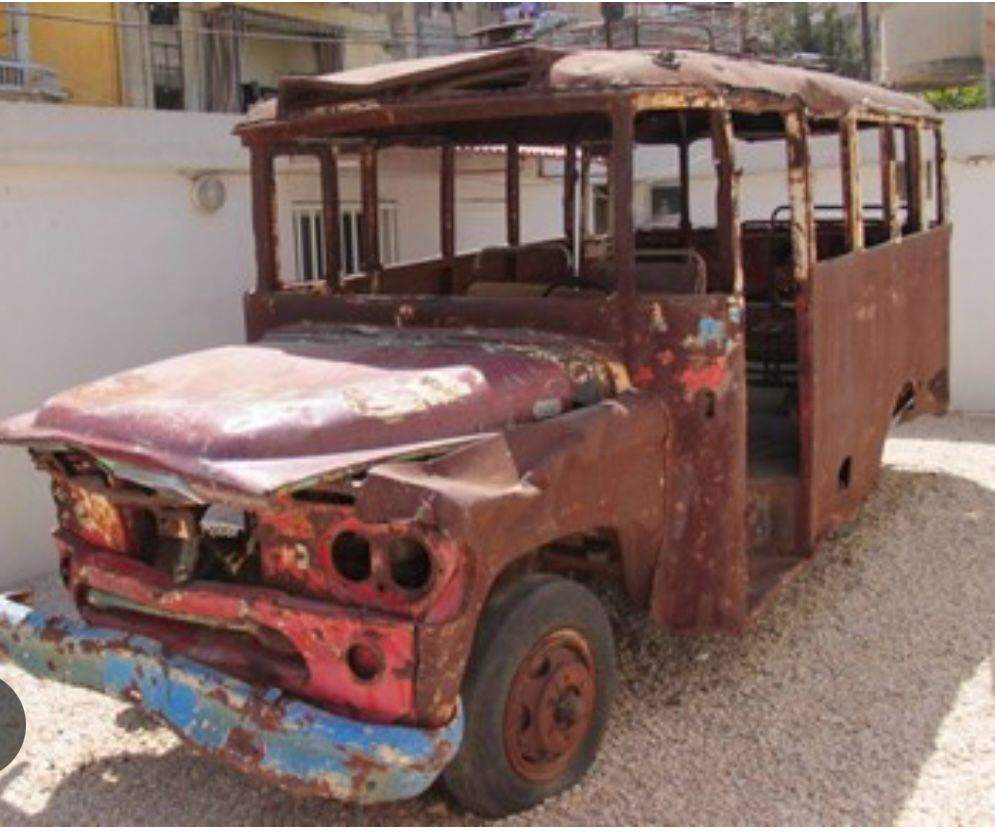Lebanese Church envokes a ‘purification of memory’ 50 years after the civil war
An appeal on the anniversary of a conflict that has a starting date, but still no end date. The Maronite Church is ready to form a committee of elders called upon to overcome ‘conflicts and amnesia’. A warning also present in the apostolic exhortation on Lebanon by John Paul II, which is still waiting to be implemented. The Land of the Cedars has been a ‘satellite’ of Syria and Iran for too long.
Beirut (AsiaNews) - On 13 April, coinciding with Palm Sunday, the Land of the Cedars commemorated the fiftieth anniversary of the outbreak of civil war on the same day in 1975, a conflict with a thousand facets and contours that only ended in 1990. On this occasion, the entire Lebanese press commented on this fateful anniversary, in an attempt to spread awareness and, if possible, exorcise it.
Assaad Chaftari, a fighter who returned to the faith and author of a remarkable autobiography entitled ‘The truth, even if my voice trembles’, commented on this anniversary by saying: ‘We have a date to commemorate the beginning of the war, but we still lack one to commemorate its end’. In this regard, on 12 April the Maronite Church relaunched a project envisaged in John Paul II's apostolic exhortation ‘A new hope for Lebanon’ (1997). This includes a request to carry out a ‘purification of memory’ after a conflict that caused 200,000 deaths and missing persons.
The project was relaunched during a meeting chaired by the Maronite Patriarch, Cardinal Beshara Raï, and attended by 25 Lebanese Christian MPs. On behalf of the primate, the Maronite bishop of Batroun, Mons. Mounir Khairallah, explained the need for this reawakening of national and community conscience; at the same time the prelate announced the formation of an episcopal commission presided over by the bishop emeritus of Beirut, Mons. Boulos Matar. This commission will be responsible for creating a multi-community committee of wise men, who will be entrusted with the task of guiding this initiative.
Unfortunately, it must be said that the Land of the Cedars has postponed for 28 years the urgent task of consciously assuming its responsibilities regarding the civil war. This process was undoubtedly inevitable, also due to the so-called ‘satellisation’ of Lebanon by Syria first, then by Iran, of which it became a vassal state. It should not be forgotten, in fact, that after the end of the civil war (fought between 1975 and 1990) the amnesty law of 1991 imposed a form of official amnesia; a law whose purpose was to protect the main community leaders, who at the time had adhered to what has been renamed the ‘Pax Syriana’, from legal proceedings.
Despite these reservations, Martin Akkad, president of the Near East School of Theology (Nest), believes that ‘the Church's approach is insufficient, because public opinion no longer reacts when it hears about dialogue between the Churches and the political elite’. ‘We must involve civil society in this process. Far from any elitism, we hope to put our experience at the service of this dialogue’. Moreover, in 2019 Akkad himself launched a ‘Cénacle Mémoire et Avenir’, which regularly organises conference-debates on the subject.
Could the civil war have been avoided? In a message to the nation on 12 April, the Head of State Joseph Aoun asked the same question, without answering it. ‘Of course, the war ended with the Taif Agreement, which included important compromises and essential constitutional changes. But the question remains: could we not have achieved these reforms through dialogue, without resorting to war, destruction and fighting?’ Nevertheless, the answer to this unresolved question must be left open until a rational analysis of the causes of the violence has been completed and a proper lesson has been learnt.
For the historian Nayla Hamadé, president of the Lebanese Association for History, there is still a long way to go before the memory of the Lebanese is ‘purified’. Moreover, officially the situation is still uncertain. Some believe that ‘this is someone else's war on our territory’. Nayla Hamadé, on the other hand, has made her decision: ‘We must convince ourselves - she explains - that it was a civil war. It's the only way we can take responsibility for our actions’ warns the academic, who risked being killed when a grenade landed near the bus she was travelling on in Baakline (Chouf).
On that occasion, the explosion killed three people, the woman recalls. It was 1979, during the so-called ‘war of liberation’ led by General Michel Aoun and the army brigades under his command against Syria. According to Marwan Chahine, author of the book ‘Beyrouth, 13 avril 1975 - Autopsie d'une étincelle’ (Prix France-Liban 2024), ‘working on the memory requires two things: documenting the facts and taking into account the memories of each group’.
That said, he adds, ‘things are moving and there are new developments. For the first time, new witnesses are speaking, including two Kataeb members who witnessed the incident and a Palestinian who was on board the minibus bomb (27 dead in total). Moreover, the bus [in the photo] has become a symbol and has been put on display in the museum (the Nebo Museum, near Chekka)’. “However, in the meantime - he concludes - there have been many new wars and many new amnesias...”. The work of purifying our memory is never completely finished and must be constantly resumed in the service of true peace.
12/02/2016 15:14







.png)










